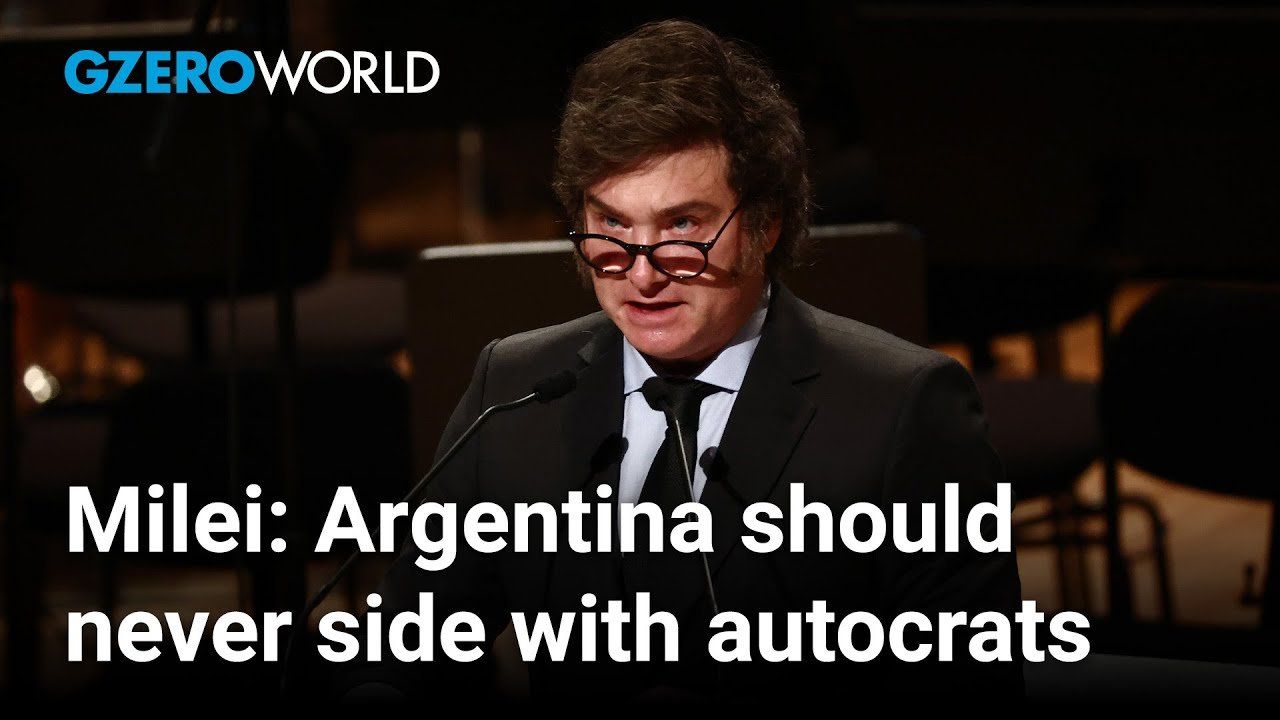GZERO World Clips
Argentina's President Javier Milei wants his nation "on the side of liberal democracies"

Argentina's Javier Milei wants his nation "on the side of liberal democracies" | GZERO World

In the latest episode of GZERO World, Ian Bremmer sits down with the new firebrand president of Argentina, Javier Milei. Milei may be best known outside of Argentina for his flair for the dramatic, whether it be cloning his dogs, calling the pope an SOB, or dressing up as a superhero to sing about fiscal policy.
But when it comes to trade and geopolitics, don’t let the fanfare fool you. Milei is clear-eyed. He plans to reverse “100 years of decadence” — which he blames on Argentina’s various leftist governments of the past — by forging an open and free trade policy.
“Trade is a prosperity machine, and we should seek every possible way to open up more markets and to open up more vis-a-vis the rest of the world,” he says.
But what might be even more striking for the flamboyant leader is his sober geopolitical outlook and his determination to keep Argentina on the side of Western democracies.
“The key point here is not just about the benefits to be gained from free trade,” Milei tells Bremmer, “but it's also a significant geopolitical matter about making sure we are on the right side of history, which is the side of liberal democracies, and not on the side of autocrats.”
Milei also cautions other nations to learn from Argentina’s missteps. “I recommend to everyone NOT to follow in Argentina's footsteps,” Milei asserts, highlighting Argentina’s drastic fall from wealth due to socialist policies. His message is clear: Argentina’s experience is a cautionary tale, underscoring the perils of forsaking economic freedom and democratic principles.
New digital episodes of GZERO World are released every Monday on YouTube and on our website. Don’t miss an episode: subscribe to GZERO's YouTube channel and turn on notifications (🔔).
Think you know what's going on around the world? Here's your chance to prove it.
In this episode of "ask ian," Ian Bremmer breaks down two high-stakes negotiations in Geneva: Russia-Ukraine and indirect US-Iran talks, calling both “underwhelming” with little progress.
In an era when geopolitics can feel overwhelming and remote, sometimes the best messengers are made of felt and foam.